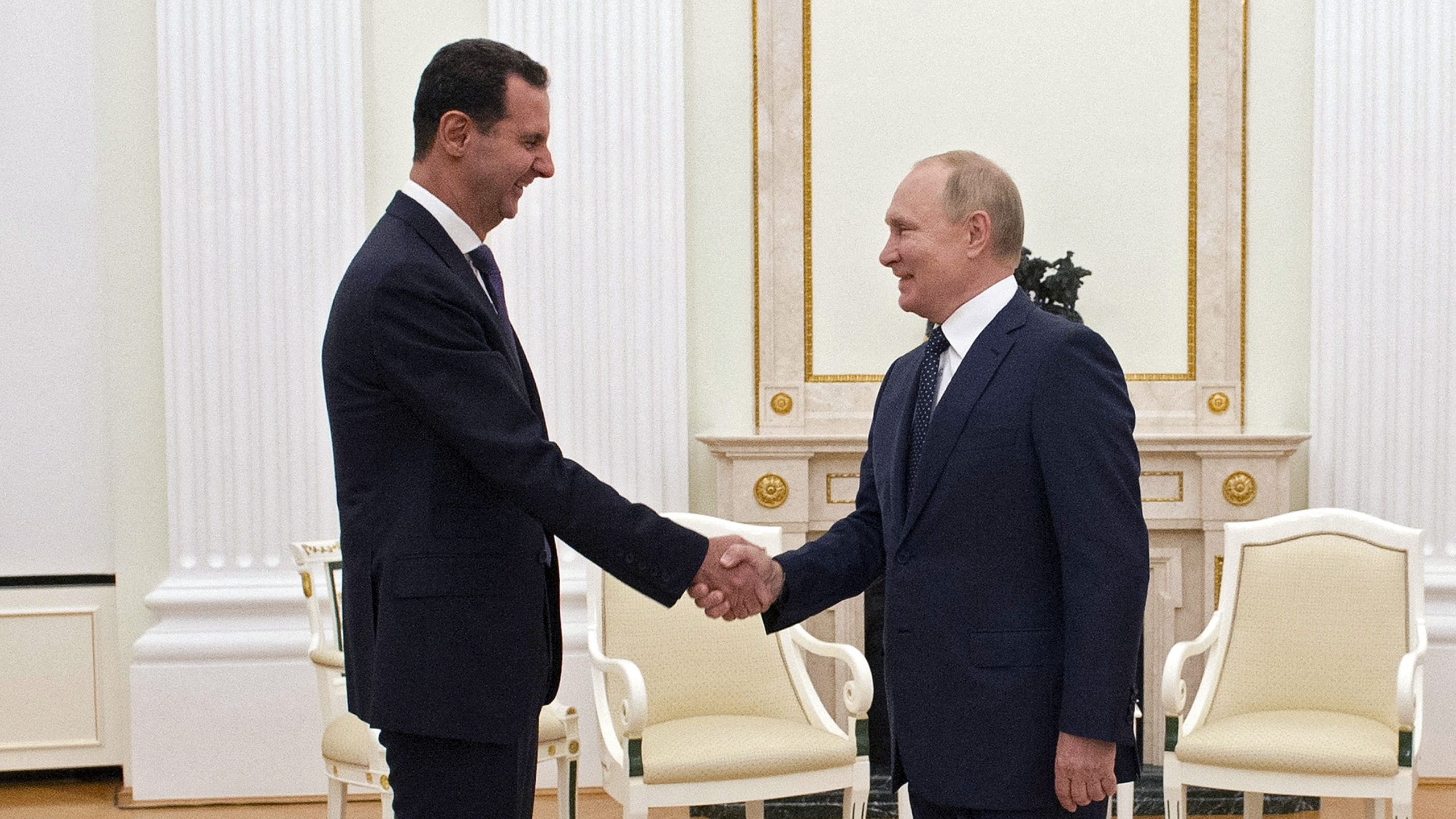A Lebanese government security source has told The Media Line that Palestinians residing in Lebanon have signed up to join the ongoing conflict in Ukraine on behalf of Russia, having been offered a sum of $350 by Russian entities.
The source added that the recruitment effort is being carried out by activists affiliated with the Palestinian embassy in Lebanon.
Most of those enlisting were born after 1969, as those born after from this point onwards do not have proper registration with the Lebanese authorities, making it easier to travel for the purpose of participating in the conflict as mercenaries.
As a result, the Lebanese government lacks the ability to monitor or track the movements of these Palestinian recruits for Russia.
The majority of the Palestinians being deployed to the frontlines in Ukraine hail from Ein Al-Khalwa, the largest Palestine refugee camp in Lebanon, just south of the port city of Sidon.
The recruits are reportedly members of the Fatah political movement, which is led by Palestinian Authority President Mahmoud Abbas, as well as other organizations such as the Popular Front for the Liberation of Palestine.
The individuals reportedly receive a monthly stipend and compensation for their families in exchange for agreeing to participate in the conflict in Ukraine on behalf of Russian forces.
The Lebanese security source indicated that the recruitment of Palestinians and others is being carried out in coordination with the Lebanese-based, Iranian-backed Hezbollah organization.
Give the gift of hope
We practice what we preach:
accurate, fearless journalism. But we can't do it alone.
- On the ground in Gaza, Syria, Israel, Egypt, Pakistan, and more
- Our program trained more than 100 journalists
- Calling out fake news and reporting real facts
- On the ground in Gaza, Syria, Israel, Egypt, Pakistan, and more
- Our program trained more than 100 journalists
- Calling out fake news and reporting real facts
Join us.
Support The Media Line. Save democracy.
According to the source, Hezbollah is also actively enlisting young supporters, including those skilled in operating drones and individuals with expertise in guerrilla warfare in urban areas, to assist the Russians in the war in Ukraine.
Riad Kahwaji, a prominent and veteran Lebanese researcher in security and defense affairs, who resides in Dubai, told The Media Line that the recruitment of Palestinians from Lebanon is not unfathomable.
“I do not have specific information on this subject, but I am not surprised that it happened because the situation in the camps is miserable… and there are no jobs for young people,” he said.
“It is not surprising that they were recruited to work with the Russians in return for paying them salaries because the camp environment is open to such possibilities,” Kahwaji said.
“Palestinian camps in both Syria and Lebanon have high unemployment, and it is not surprising that these things happen.”
 [2]
[2]Russian President Vladimir Putin meets with Syrian President Bashar Assad at the Kremlin in Moscow on Sept. 13, 2021. (Mikhail Klimentyev/Sputnik/AFP via Getty Images)
It is not clear exactly how many Palestinians have been recruited to fight for Russia, but it is thought that approximately 300 individuals have already completed rapid training in Russia and been deployed to the frontlines.
In the Ein Al-Khalwa refugee camp, another group of approximately 100 additional fighters is reportedly being organized and prepared for deployment to Russia in the near future.
Muhammad Sarmini, Director of the Abaad Center for Strategic Studies, based in London and Istanbul, told The Media Linen that since the start of the Russian invasion of Ukraine in February 2022, Syria has seen two paths for recruiting fighters to join the invading Russian troops.
The first path is recruitment via the Wagner Group, a Russian paramilitary organization believed to have been founded by Dmitry Valerievich Utkin, a former special forces officer in Russia’s Main Intelligence Directorate (GRU).
The group’s representatives recruited fighters in areas along the Syrian coast and with a high population of young Palestinians. The recruitment process was conducted through delegates who met inside the Khmeimim Air Base, a Russian-controlled installation near the northwestern port city of Latakia.
The second path includes sending fighters from the Syrian regular forces, especially from the military units supervised by Russia, such as the 25th Special Operations Division, headed by Maj. Gen. Suhail Al-Hassan.
Sarmini said these elite fighters are highly paid to enter the war zone, earning $500-700 per month, a very high sum by Syrian standards.
Russia’s desire to recruit Syrian fighters has two aims: to bolster the number of its fighters in Ukraine and as a display of loyalty from the regime of Bashar Assad, which would not have survived until today without Russian support.
The Palestinian embassy in Lebanon declined to comment on the matter, saying it had no connection to the conflict in Ukraine and did not encourage Palestinians to participate in it.

